"Moon River" vs. "Blue River"
Peekaboo to you! A Tale of two Huckleberry Friends, Johnny Mercer and Joseph Meyer (A Henry Mancini Centennial Special Story)
Two drifters off to see the world
There's such a lot of world to see
We're after the same rainbow's end
Waiting 'round the bend
My huckleberry friend
Moon River and me
People have wondered - and some have even asked me - precisely what Johnny Mercer meant by the phrase “my huckleberry friend” in one of his most famous songs, his third of four Academy Award winners, the 1961 “Moon River.” Why is that expression in there? I do not know definitively, but what follows is my own theory.
The answer begins with another songwriter. Joseph Meyer was born in Modesto, California, in 1894. He had a long life - making it to 93 in 1987 - but not a particularly long or prolific career in the music business. He spent most of the 1920s and ‘30s writing songs, a respectable number of which are still known and performed today, including:
“My Honey’s Lovin’ Arms” (1921)
“California, Here I Come” (1924)
“If You Knew Susie” (1925)
“A Cup of Coffee, a Sandwich, and You” (1925)
“Clap Hands, Here Comes Charlie” (1925)
“Crazy Rhythm” (1928)
“You’re Simply Delish” (1930)
“Isn’t It Heavenly” (1933)
“I Wish that I were Twins” (1934)
“Junk Man” (1934)
“Hurry Home” (1938)
“Peekaboo to You” (1941)
These are all excellent songs, although, ironically, the one you probably haven’t heard of, the last one, “Peekaboo to You,” is quite possibly the most significant - as we shall see - because it had lyrics by Johnny Mercer. (There are great recordings by Bea Wain on Victor and Glenn Miller and his Orchestra with the Modernaires on Bluebird.)
In 1927, Meyer and Alfred Bryan wrote “Blue River,” a song that was reasonably successful in its day. There were no charts in those days - anybody that says otherwise is a big fat liar (see my story on Joel Whitburn’s Pop Memories) - but we can gauge the success of a song at least somewhat by the number of times it was recorded when first published. As it happens, the legendary Bix Beiderbecke recorded it twice, with both Jean Goldkette’s Orchestra on Victor and then again with Frank Trumbauer’s Orchestra on Okeh. (The latter is the version that we discussed in our previous post on Artificial Intelligence and April Foolery.) Both are below:
This is a rare song that was also popular enough to be recorded by the two greatest entertainers of the era, Al Jolson and Sophie Tucker, both also below. Both versions include the verse (“birds in the trees, and a song of the breeze..”); Jolson’s is relentlessly uptempo and peppy; Tucker’s, which is one of the longer 10” 78s out there at 3:30, is much more like a torch song.
Other than Bix and Jolson fans, the song was pretty much forgotten - as far as I can tell - so much so that other songwriters felt free to re-use the title. Here’s another “Blue River,” written by two considerably more famous songwriters, Victor Young and Ned Washington, and sung by Jack Teagarden - accompanied by Young’s studio orchestra in 1933. He recorded the song again with his own working big band, for Decca in 1941.
And still there are other “Blue River”s, including a British song (“Blue River, Roll Along”) also from 1933, played here by Jack Jackson and His Orchestra. Plus Bob Wills with a “Blue River” and yet one more by Elvis Presley (1963).
The following also belong on this list, although there are more words in the titles beyond “blue” and “river.” The idea is the same in a beautiful song by Kurt Weill (from a 1939 film titled The River is Blue, sung here by Maude Maggart in a medley with “Skylark.” John Pizzarelli also used the title “The River is Blue” for as a lovely original bossa-ballad for his 1992 album All Of Me.
This is not intended as a definitive study of blue rivers in popular song, but merely to make the point that there were a lot of blue river songs by 1960.
In 1960, Henry Mancini and Johnny Mercer were brought together by director Blake Edwards to write a song for Audrey Hepburn in the forthcoming movie version of Truman Capote’s already-classic novella, Breakfast at Tiffany’s. The two of them came up with a lovely waltz that was somewhat also reminiscent of a folk song - a simple melody for an actress with a very small range, who wasn’t even really a singer. It was suggestive of a nursery, a tune that a child might learn. Supposedly the original title was “Blue River” - and that’s why the singer, in the lyrics, addresses the anthropomorphic river itself as “my huckleberry friend.”
My theory is that Mercer decided to change the title from “Blue River” to “Moon River” because he hated to duplicate anything already done by another songwriter. To wit:
Daryl Sherman tells the story of why he changed the name of “Baby Don’t You Quit Now” (music by Jimmy Rowles) to “Little Ingenue” because elements of the lyrics were too similar to something by Cole Porter.
Johnny Mandel told me that Mercer declined to do the lyric to “Shadow of Your Smile” because the first few notes reminded him too much of Hoagy Carmichael’s “New Orleans” (1932).
It’s always been my contention that Mercer was uncomfortable working on his next big song with Mancini, “The Days of Wine and Roses,” because the title was lifted from an 1896 poem by Ernest Dowson. Mercer was literary enough that the instant somebody gave him the film’s title, he knew where it had come from, and was loathe to take anything from another songwriter or poet - even in what might be considered a tribute.
And Mercer would have really hated the idea of stealing a title from Joe Meyer - even of a long-forgotten song, and also even though there had been umpteen other “Blue River” songs over the last 35 years. As we know, it’s perfectly legal for two songs to share the same title. Mercer was enough of a jazz buff to have remembered the Bix records of Joe Meyer’s “Blue River,” not least because Meyer was a friend and a collaborator - they had written at least four songs together, although we’ve already noted that only one was really significant:
“Dark Is the Night” (1933)
“In a Cafe in Montmartre” (1933)
“Peekaboo to You” (1941, credited to Carl Sigman as well as Mercer and Meyer) “Parting Is Such Sweet Sorrow” (1949)
and one more published much later, “Reflections” (1972)
Thus I believe it was out of deference to Meyer, who was still around, that Mercer ultimately insisted that they title their waltz something other than “Blue River” - even though the “huckleberry friend” reference doesn’t make sense unless we know that the river is blue. Of course, a lot of us feel that this makes the song even greater. When Mercer retitled it “Moon River,” it gave the song a quixotic, gnomic feel - like we don’t know quite what’s going on, that adds to the songs mystery and majesty, especially if we can agree in that it’s about a young person in a small town, like Holly Golightly in Breakfast at Tiffany’s, or Mercer himself, who dreams of bigger things and going off to see the world.
Very Special thanks to the fabulous Ms. Elizabeth Zimmer, for expert proofreading of this page, and scanning for typos, mistakes, and other assorted boo-boos!
TWO HIGHLY-RECOMMENDED FORTHCOMING EVENTS AT THE TRIAD ON SUNDAY OCTOBER 27
Private Event for SLOUCHING TOWARDS BIRDLAND subscribers!
(please RSVP me at wfriedwald@gmail.com)
Sunday October 27 - doors open @ 7:30PM, film to start at appx 8:00PM
The Triad Theater &
Will Friedwald's CLIP JOINT present
LIKE TOTALLY TOGA-LICIOUS!
THE BIG HALLOWEEN 2024 TOGA PARTY
featuring a screening of RICHARD LESTER's great 1966 film version of STEPHEN SONDHEIM'S classic Broadway musical, A FUNNY THING HAPPENED ON THE WAY TO THE FORUM
starring ZERO MOSTEL, JACK GILFORD, MICHAEL CRAWFORD, PHIL SILVERS, & BUSTER KEATON
plus a mini Clip Joint Broadway mixtape of classic FORUM numbers from vintage 1960s variety shows.
no cover - but we will ask everyone to kick in a little $ (on a volunteer basis) to pay the projectionist
drinks available & encouraged (cash bar)
Proper ANCIENT ROMAN / TOGA attire recommended!
A matinee screening of the Twilight Zone episode “A Stop at Willoughby” (creator Rod Serling’s favorite episode) and the 1968 cult film The Swimmer (starring Burt Lancaster, based on John Cheever’s greatest short story) is at The Triad Theater, a cabaret-sized upstairs room on West 72nd street, sporting a brand new 4k projection system with 12.3 surround sound, on Sunday, October 27 at 2:00PM (note updated date & time) : for more info bit.ly/3MUMQ5k
Read Arlen’s article about “The Twilight Zone and The Swimmer”: bit.ly/47y8sxY
Sing! Sing! Sing! : My tagline is, “Celebrating the great jazz - and jazz-adjacent - singers, as well as the composers, lyricists, arrangers, soloists, and sidemen, who help to make them great.”
A production of KSDS heard Saturdays at 10:00 AM Pacific; 1:00PM Eastern.
To listen to KSDS via the internet (current and recent shows are available for streaming.) click here.
The whole series is also listenable on Podbean.com; click here.
SING! SING! SING!
October 5: The BOBBY SHORT Centennial “Afro-Centric”
download: <or> play online:
SLOUCHING TOWARDS BIRDLAND is a subStack newsletter by Will Friedwald. The best way to support my work is with a paid subscription, for which I am asking either $5 a month or $50 per year. Thank you for considering. (Thanks as always to Beth Naji & Arlen Schumer for special graphics.) Word up, peace out, go forth and sin no more! (And always remember: “A man is born, but he’s no good no how, without a song.”)
Note to friends: a lot of you respond to my SubStack posts here directly to me via eMail. It’s actually a lot more beneficial to me if you go to the SubStack web page and put your responses down as a “comment.” This helps me “drive traffic” and all that other social media stuff. If you look a tiny bit down from this text, you will see three buttons, one of which is “comment.” Just hit that one, hey. Thanks!
Slouching Towards Birdland (Will Friedwald's SubStack) is a reader-supported publication. To receive new posts and support my work, consider becoming a free or paid subscriber.

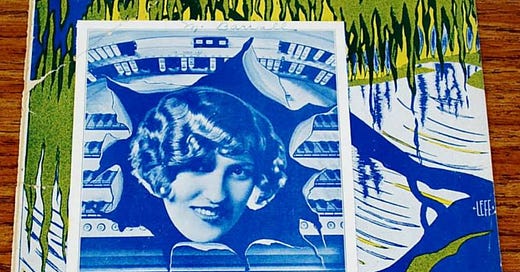


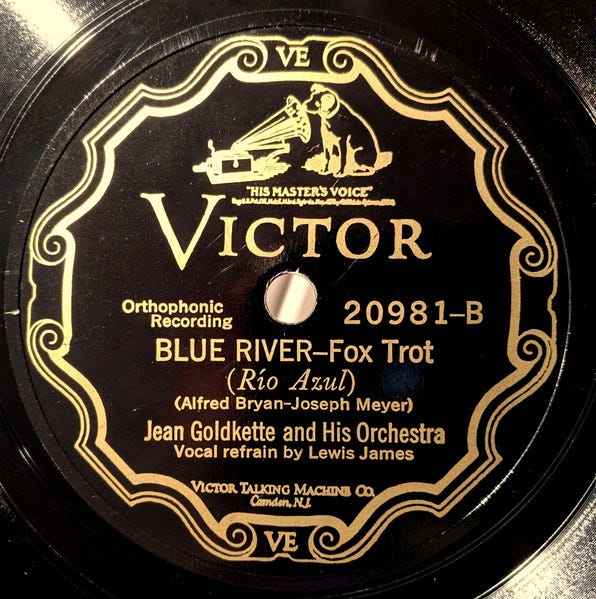
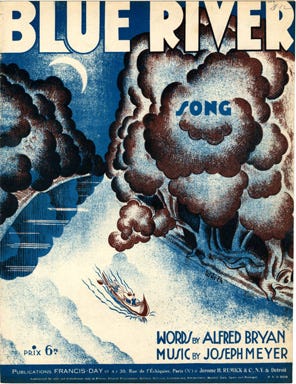

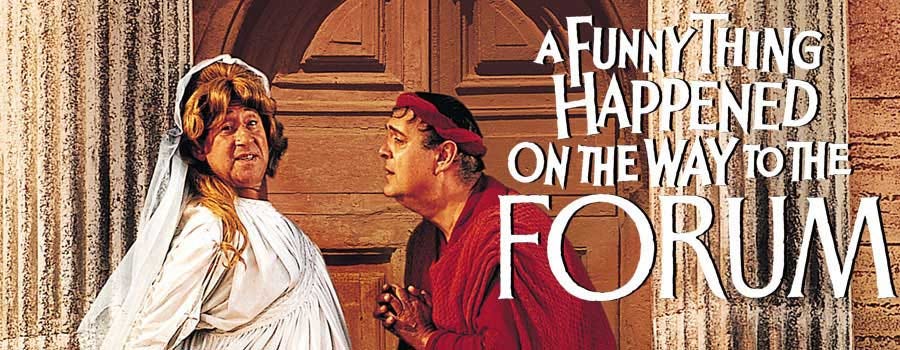
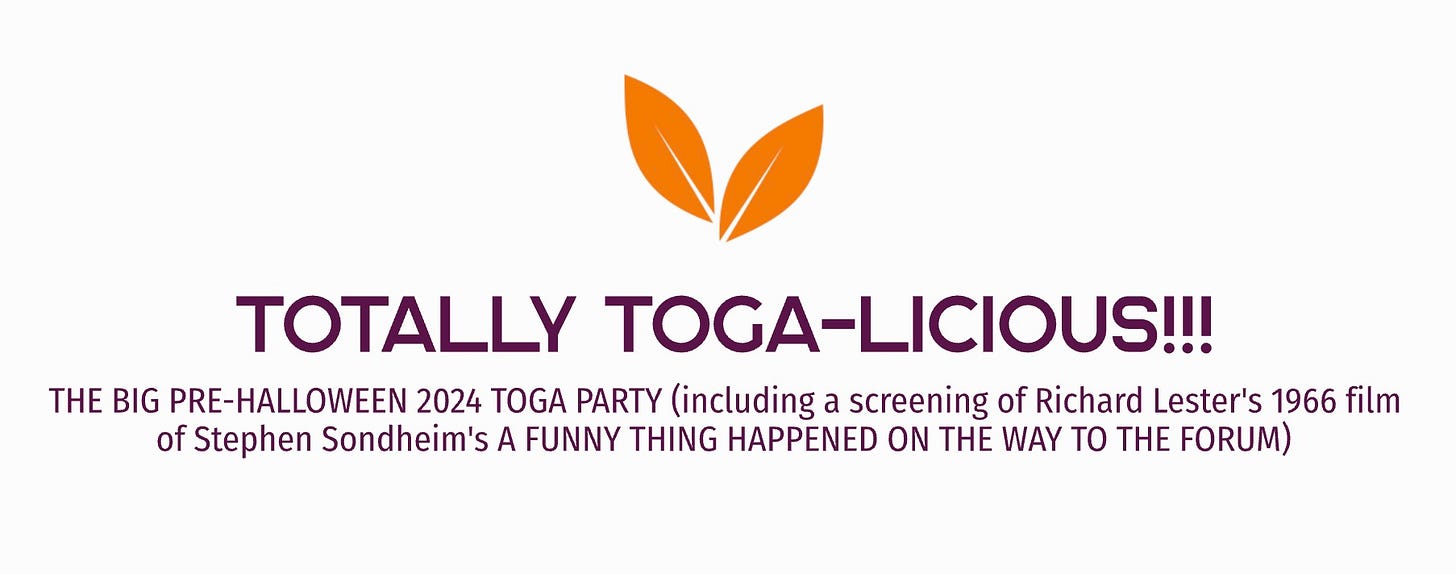
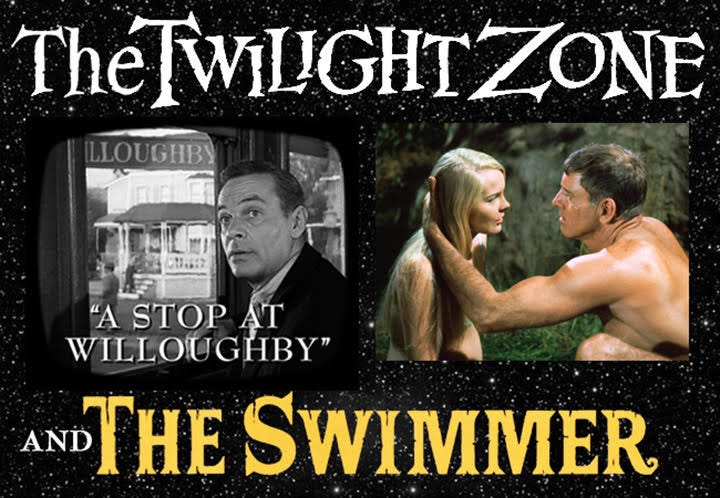
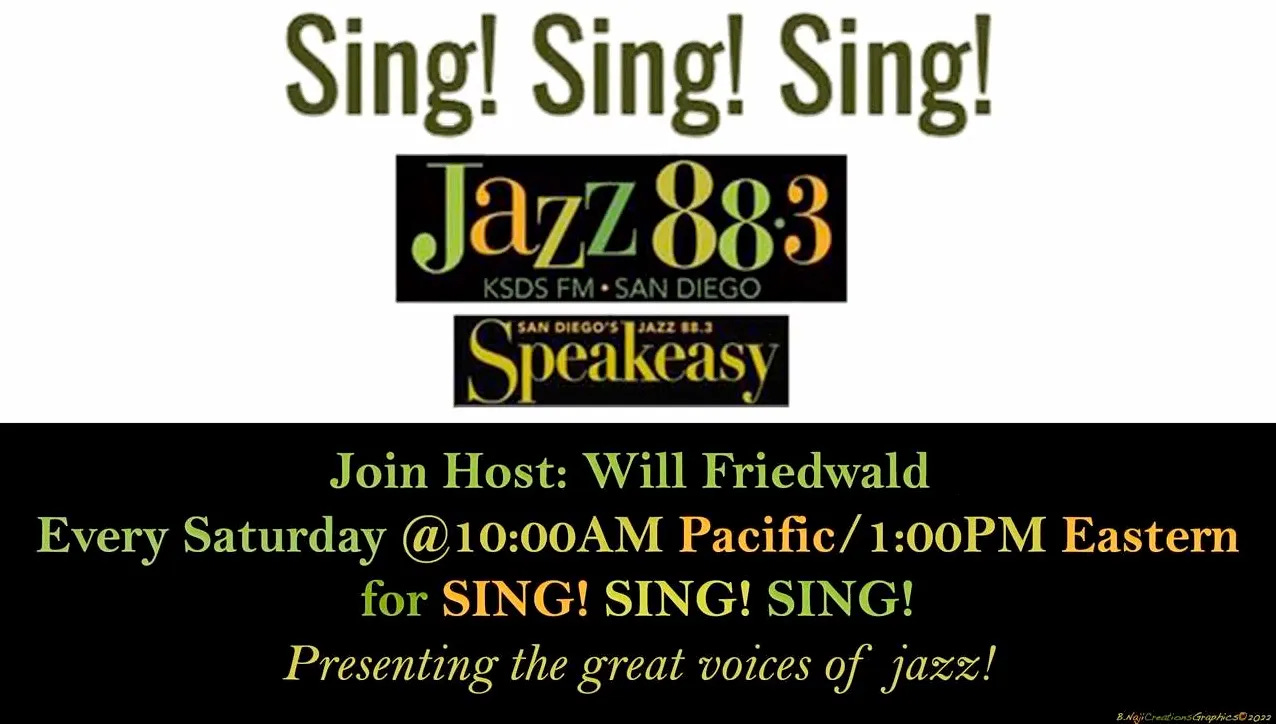
Will, it's so simple I remain astonished that I have never seen the following stated anywhere:
"Huckleberry friend" is a pun on "Huckleberry Finn."
All intellectual contortions about the why of it may now cease.
"Moon River" was the name of a late night radio show from WLW in Cincinnati, beginning in the 30s. WLW had a powerful transmitter and the show was widely heard. Many famous entertainers appeared on the show over the years, such as Doris Day and Fats Waller. The show began with a poem about Moon River. Mercer would have almost certainly been familiar with the show; it does seem odd that, if he objected to reusing a song title, he would have opted for the title of a radio show instead. (But of course, "Spoon River" was already taken too.